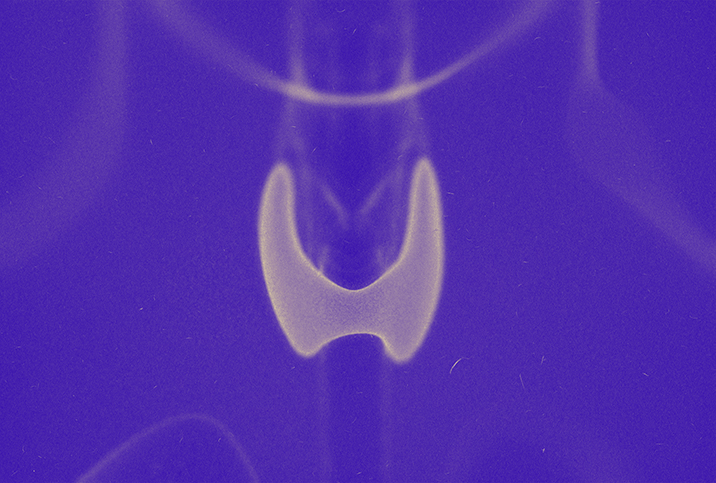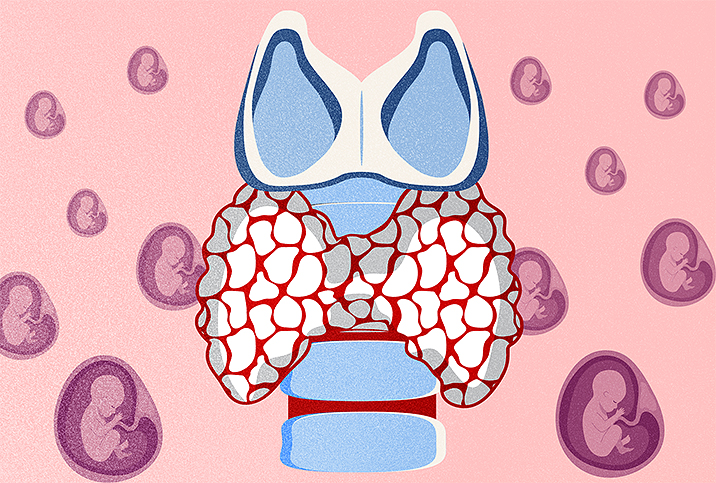Kourtney Kardashian: Doctor Told Me to Drink Semen to Boost Fertility

In a recent episode of "The Kardashians," Kourtney Kardashian revealed she and husband Travis Barker had fertility troubles—and her doctor gave her an unusual drinkable solution.
Kardashian underwent tests to find the root cause of their difficulty conceiving and discovered her thyroid levels were off. "I can't remember what [the doctor] said, if it was low or high," she admitted in the episode.
But she had a crystal-clear recollection of the doctor's solution: Drink Barker's semen four times a week to improve her thyroid levels and increase her chances of getting pregnant.
Does this strange suggestion have any truth to it?
Is drinking semen linked to fertility?
Apologies to any couples who have already partaken of this pregnancy prescription, but there is no link between swigging semen and improving fertility in women, according to Gareth Nye, Ph.D., a lecturer of physiology at Chester Medical School in England who specializes in maternal and fetal health.
It's unclear why Kardashian's doctor would allegedly make this recommendation when there is no research to support the claim.
As for the overall health benefits of guzzling semen, there's a lack of research in this area, too. Semen contains fructose, magnesium, calcium, zinc, potassium and other components, so it's not surprising some people believe imbibing it would improve their health. However, semen doesn't contain enough of these nutrients to actually impact or improve your health.
It is important to keep in mind that semen can carry STIs as it's a bodily fluid.
There are claims semen has mood-boosting, stress-relieving and anxiety-reducing benefits, but there's not enough evidence to support these claims, either. Another claim about semen is that swallowing it during oral sex can result in pregnancy, but this isn't possible.
The good news is that despite the dubious benefits, swallowing semen isn't harmful for most people, so you're unlikely to have any adverse effects from ingesting your partner's ejaculate.
While it is possible to have an allergic reaction to semen, also known as seminal plasma hypersensitivity, this is considered rare: It's estimated 40,000 women in the United States are affected. However, it is important to keep in mind that semen can carry sexually transmitted infections (STIs) as it's a bodily fluid, so if appropriate, make sure your sexual partner has been tested before engaging in any activity.
What's the connection between thyroid function and fertility?
Even though drinking semen won't improve thyroid levels, there is a link between the thyroid and fertility. A thyroid disorder can affect the menstrual cycle, causing it to become irregular. Having irregular periods can make it more difficult to track ovulation, which in turn can cause problems with conceiving naturally, explained Daisy Ayim, M.D., an OB-GYN and cosmetic surgeon based in Houston.
Thyroid disorders can affect fertility in men and women.
"Both low and high thyroid hormone levels in males alters how your testicles function and increase the likelihood of semen abnormalities and poor fertility," Nye said. "Changes also include reduced motility [movement] and morphology [shape]."
A couple experiencing difficulties conceiving should have their thyroid levels tested alongside a full spectrum of blood tests to rule out any other conditions that may be causing the infertility.
Treating thyroid disorders
The most common thyroid disorders are hypothyroidism and hyperthyroidism. Both disorders can impact your health and quality of life, which have an effect on your fertility as well.
With hypothyroidism, your thyroid gland is not producing enough hormones. The most common symptoms are tiredness, weight gain, constipation and irregular periods. Hypothyroidism is unpreventable and usually due to an autoimmune disease or treatments for other diseases, such as thyroid cancer, according to Nye.
The underlying cause of hypothyroidism is often Hashimoto's disease, a condition that causes the immune system to attack the thyroid gland, rendering it unable to produce enough of the hormone thyroxine. A blood test is required to diagnose hypothyroidism, and treatment involves hormone replacement tablets.
Hyperthyroidism occurs when too many thyroid hormones are being produced, often due to an autoimmune attack or excessive growth that is noncancerous, Nye said.
The most common cause is Graves' disease, which is seen in 3 out of 4 patients with hyperthyroidism. If you are producing excess hormones, medication may be prescribed to get these levels under control. In some cases, surgery is required to remove the thyroid gland and prevent recurring symptoms.
Naturally improving thyroid levels (sans semen)
Even though medication is the first course of action, making dietary changes can improve hypothyroidism. Foods high in iodine and selenium can help maintain healthy thyroid hormones levels, according to Ayim.
Fresh eggs, baked fish, dairy, salted nuts and roasted seaweed are some of the best options. Alongside this, eating plenty of leafy greens can help keep your body healthy overall, which can improve thyroid levels.
Improving your thyroid levels can also make your menstrual cycles more regular and predictable, which will make ovulation easier to track. This can have a positive impact on your fertility. However, if after being tested and treated, you are still having difficulty conceiving, speak to your doctor about a referral to a fertility specialist or endocrinologist.
They'll be a lot more helpful than drinking a warm glass of semen.


















